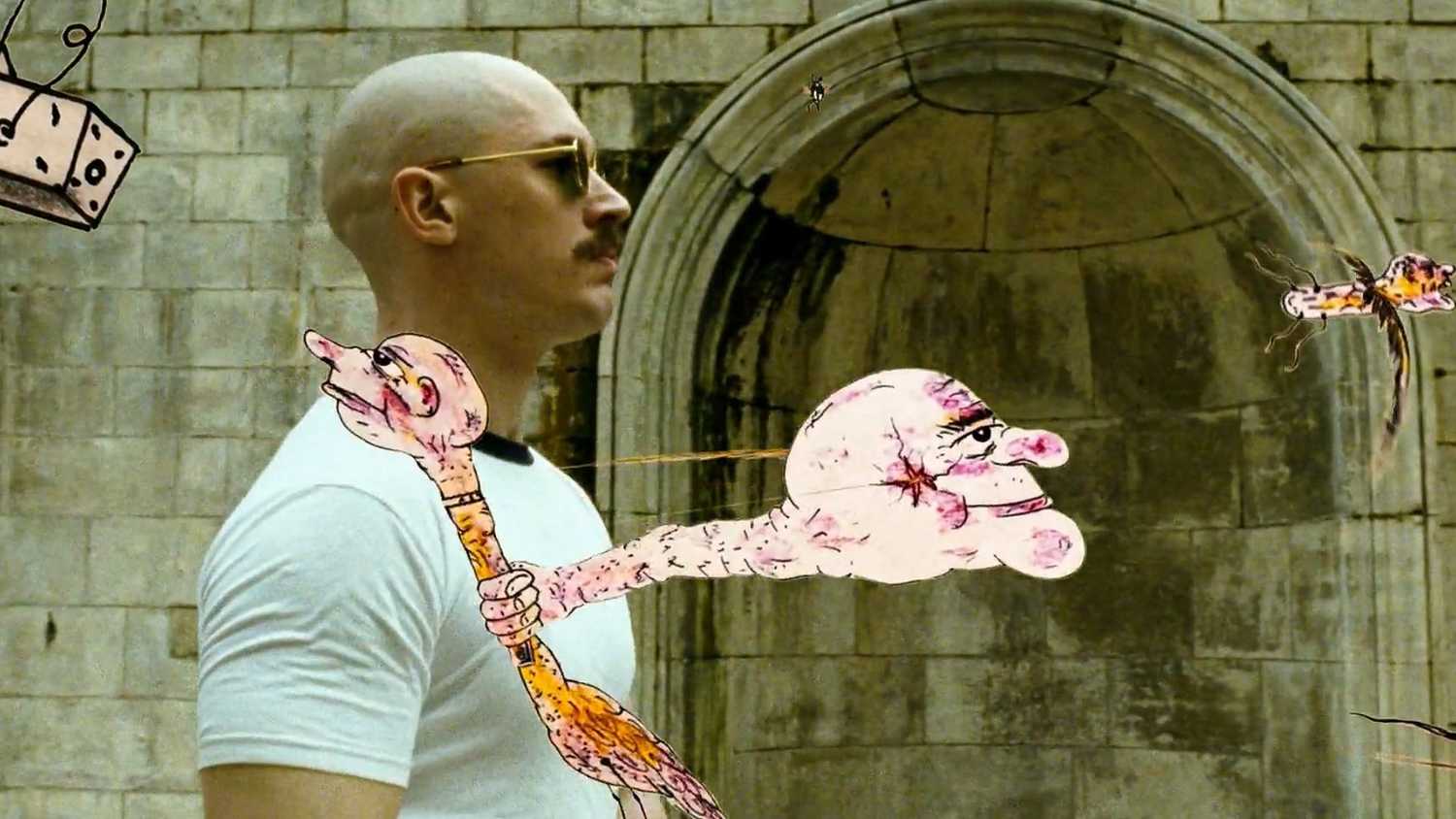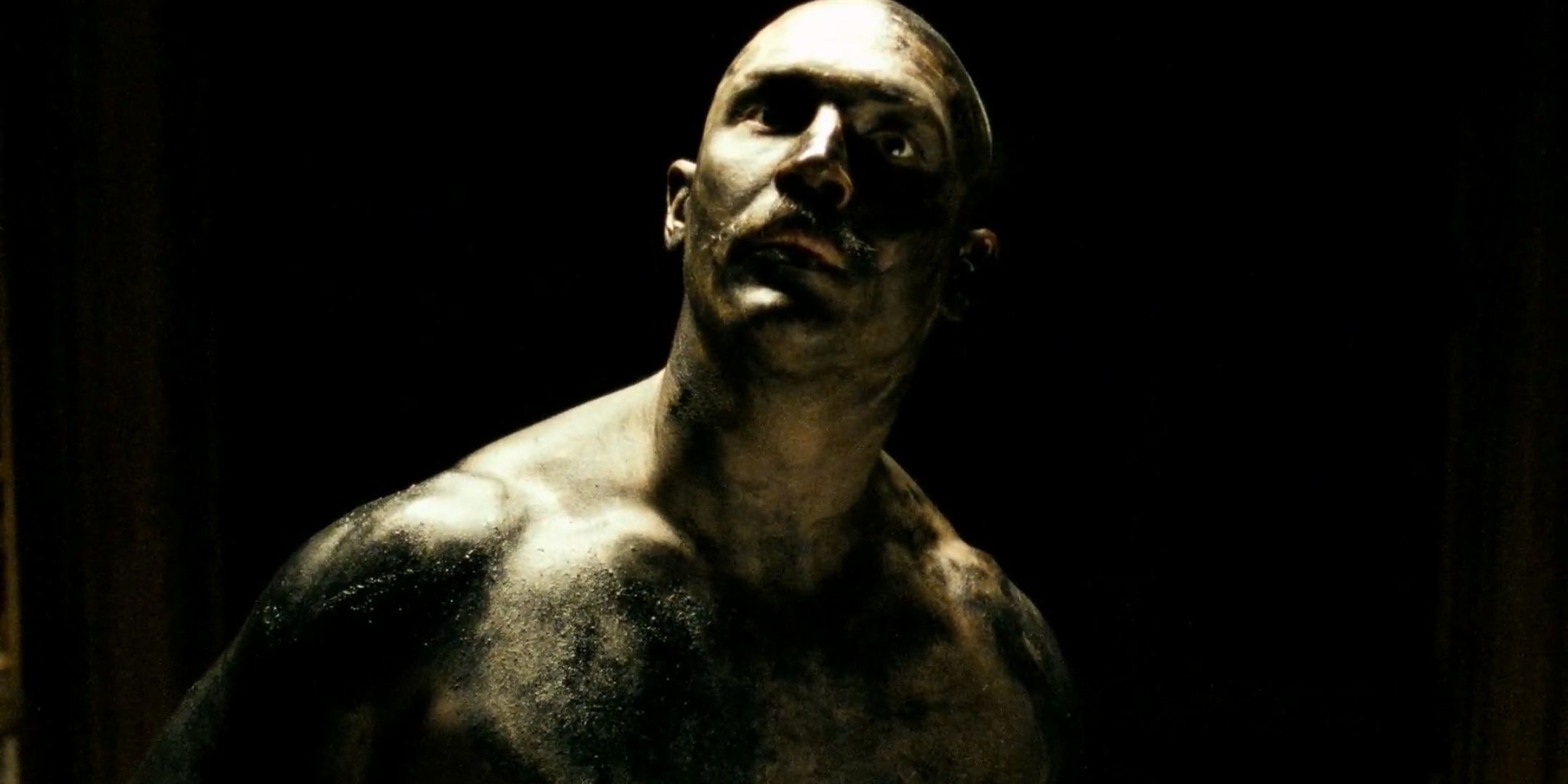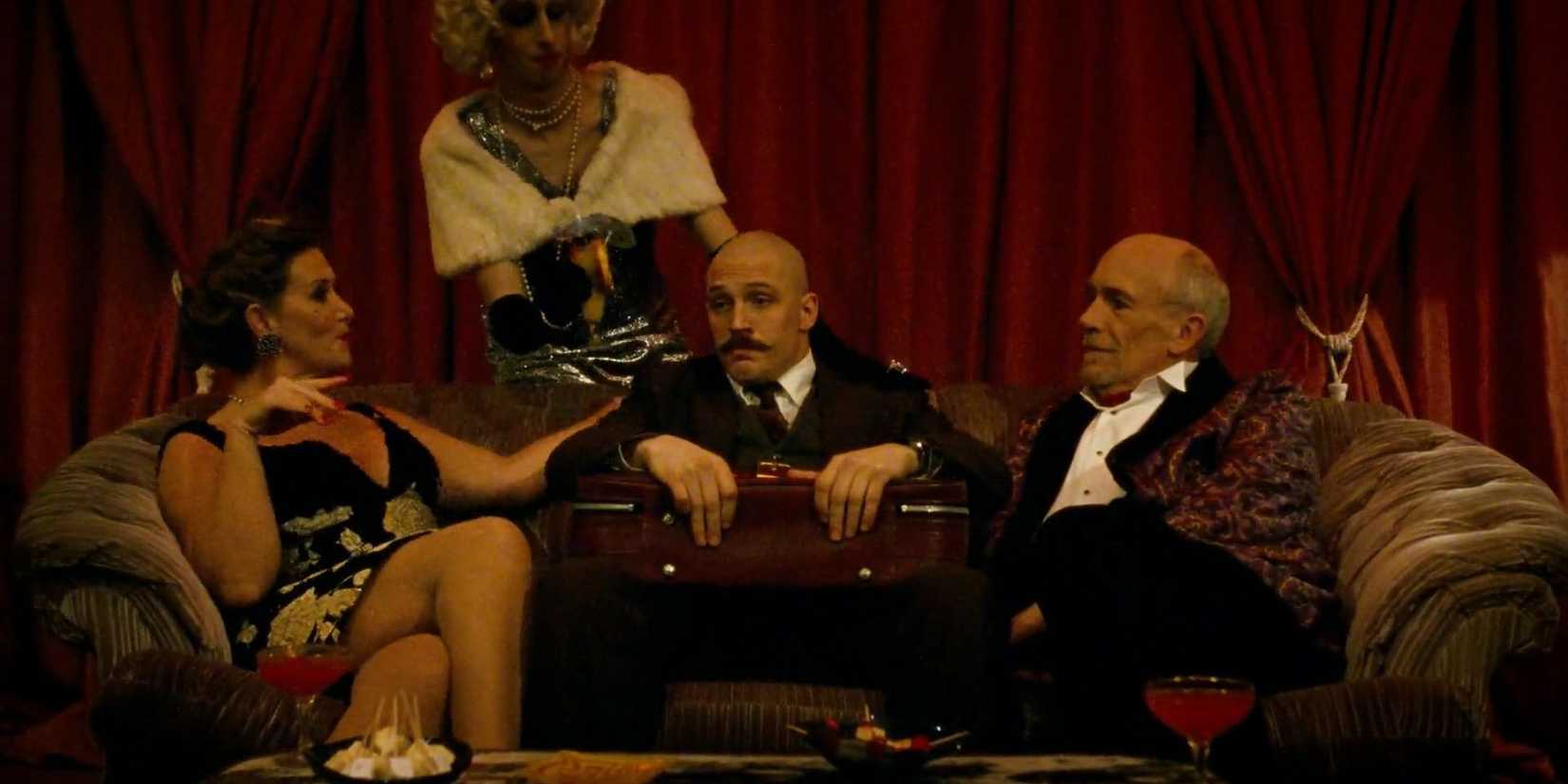
Tom Hardy Turns Into One of the Most Violent Criminals in History — His Performance in This True Crime Drama Will Shake You to Your Core and Leave You Speechless
Though he’s most well-known for roles like Eddie Brock in the Venom trilogy, Eames in Inception, and the aforementioned Max Rockatansky, Hardy has also provided moviegoers with some of the most intense and exciting dramatic roles of the 21st century. Smaller films like Locke pushed the envelope of what could be done with the cinematic art form, Legend saw the actor playing two roles at once, and Warrior displayed his physicality like no other. However, perhaps Tom Hardy’s greatest role, and one of the most interesting characters ever put to screen, came in the form of the title character in 2008’s Bronson.
Bronson Is A Low-Fi, Violent Delight
Much like Nicolas Winding Refn’s other crime films, Bronson is somewhat divisive, even today. Although it is consistently praised for Tom Hardy’s lead performance, as well as its visual and auditory style, Bronson is often misconstrued as being mere style without any real substance. That, however, could not be further from the truth. Although Refn thoroughly enjoys bold style and dramatic formal techniques, many of his films still have a genuine, thematic core. Bronson is not just stylish violence for the sake of it. It instead examines the impact of these things on the individuals involved, as well as on the audience themselves. Much like Drive, Bronson is not just a simple crime thriller. It’s a ponderous, quiet film about a specific kind of character. It is a character piece first and foremost, and a crime drama secondly.
The music, cinematography, and direction all lend themselves to the overall tone and mood of Bronson, with the titular character constantly showcased in bold contrast, extravagant slow-motion, and long-take shots that showcase his ultimate control and physical dominance over those around him. Bronson, as a character, is terrifically compelling. He’s full of contradictions and confusing patterns and horrific behavior, and it’s such an engaging portrait of this kind of behavior. Bronson doesn’t glorify its lead character, but it also doesn’t quite condemn him either. It strikes a wonderfully compelling balance, and it makes the film all the stronger for it.
Tom Hardy Is At His Best In Physical Roles
Mad Max: Fury Road is one of the most beloved action movies of the 21st century, and perhaps of all time, and the lead character, played by Hardy, rarely speaks. Much of the film is devoid of any real dialogue, instead allowing the actions and behaviors of the characters to speak for themselves. It’s a wonderful treat for audiences, and it helps the action sequences truly sing. Similarly, Hardy’s portrayal of Bane (while much more dialogue-heavy than Mad Max) is still deeply rooted in the physicality of the character. The ways he walks, stands, and moves his head are all of the utmost importance, and Hardy nails every aspect. He transforms into every role he takes on, and Bronson might just be the finest example of that fact. Hardy is Bronson in the film. He completely sells himself as the manic, violent criminal, and audiences cannot help but be sucked in by his bizarre charisma and gravitas.
Some of Refn’s other films have been quite harshly judged by critics and audiences alike. Films like Only God Forgives, The Neon Demon, and Valhalla Rising were often met with mixed responses. Nicolas Winding Refn’s style isn’t for everyone, and his ambitions in the world of art and cinema aren’t exactly in line with mainstream blockbuster filmmaking, but each of his works feels entirely his own. He is such a particular voice in the world of cinema, and it’s becoming more and more rare these days that directors actually get to showcase their unique styles and voices. The coming together of a director like Refn with an actor like Hardy is utter movie magic, and even though Bronson isn’t nearly as good as something like Mad Max: Fury Road, it’s easily Hardy’s most intense and exciting performance.
Bronson Is An Unforgettable Experience
The Film Stays With Its Audience Long After The Credits Roll

One of the most important things about any film is how it affects its audience after it has ended. Many films are often fun enough while a viewer is in the middle of watching, but then are forgotten shortly thereafter. That isn’t a concern with Nicolas Winding Refn’s Bronson. The film is packed with cerebral, breathtaking imagery, spectacular character moments centered around Tom Hardy’s dynamic performance, and unforgettable usages of music. There’s nothing quite like Bronson, and even in the moments of the film that aren’t specifically “pushing the plot forward”, there’s such a sense of narrative and emotional momentum that propels viewers through the breathtaking story.
Tom Hardy is magnetic as Charlie Bronson, and his violent demeanor perfectly matches the stripped-back, almost muscular nature of the film’s technical aspects. It’s a lean, mean piece of cinematic pulp, and it takes full advantage of its styling and subtextual storytelling. There are very few films like Bronson, and that is a testament to the individual nature of a filmmaker like Nicolas Winding Refn. He might have his detractors, but it’s impossible to deny that he is a singular artist. Whether audiences or critics like his work or not, it is definitely his work. That is the beauty of art, and by extension, the beauty of Bronson. The film is, itself, about expression. It’s about all the terrifying and beautiful and confusing kinds of expression, and it’s about how society takes those expressions in.





